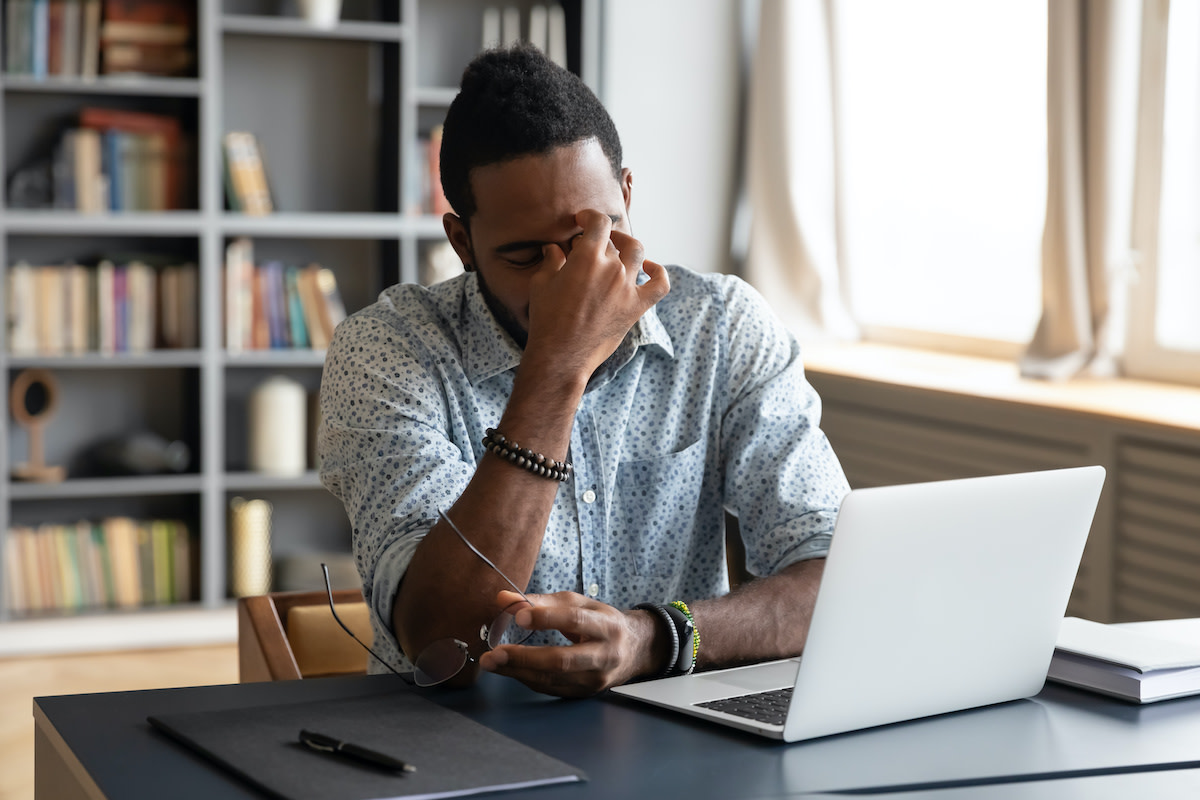9 Tips for Curbing Excessive Daytime Sleepiness
Written by MasterClass
Last updated: Jun 7, 2021 • 4 min read
It can be challenging to stay energized and focused throughout the day without a good night’s sleep. However, many natural and effective methods for staying awake can help you offset the adverse effects of poor sleep quality.
Learn From the Best
4 Factors That Cause Daytime Sleepiness
Whether you’re working the night shift or pulling an all-nighter, poor sleep quality can impact your ability to function the next day, forcing you to manage the daily stresses of life through a fog of daytime sleepiness. There are a few factors that can cause daytime sleepiness:
- 1. Sleep deprivation: Sleep deprivation occurs when you don’t routinely get sufficient sleep at night. While seven to eight hours of quality sleep time is the baseline for most adults, the Centers for Disease Control and Prevention (CDC) estimates that one-third of American adults suffer from measurable sleep loss. This lack of sleep can disrupt everyday life and lead to grogginess, daytime fatigue, and delayed reaction times.
- 2. Sleep disorders: A sleep disorder is a medical condition that interferes with a person’s regular sleep schedule. Disordered sleeping symptoms include daytime drowsiness, concentration issues, breathing irregularity, performance impairment, and irritability. Without enough sleep, your body may crash the following day, leading to a cycle of daytime tiredness.
- 3. Sleep fragmentation: Sleep fragmentation refers to arousals during your sleep cycle that throws off your natural circadian rhythms, leading to sleep disruption and overall poor sleep. Sleep fragmentation and resultant sleep loss also lead to significant differences in your waking functions, resulting in daytime sleepiness.
- 4. Medications: Sleep medications can make you fall asleep but ultimately produce low-quality sleep. A fully restorative night includes both REM sleep and deep sleep, and some over-the-counter drugs impair these stages of the sleep-wake cycle, leaving a lingering, tired feeling the following morning. Additionally, other medications, like antihistamines or benzodiazepines, can cause daytime fatigue.
How to Curb Daytime Sleepiness
Some people drink coffee or eat a sugary snack to boost their energy levels during the day, but these short-term solutions can lead to fatigue. Here is a list of best practices to help you stave off daytime drowsiness:
- 1. Eat a light snack. A light, healthy snack (like a spoonful of homemade peanut butter, a few celery sticks, or a serving of plain yogurt) can boost your energy, staving off daytime sleepiness. Avoid snacks with added sugar, which spike insulin levels and make you feel more tired once those levels decline.
- 2. Hydrate. Dehydration can sometimes cause your body to feel tired. Try drinking fluids like cool water or club soda (rather than caffeinated beverages or energy drinks) to hydrate your body and help you wake up.
- 3. Mix up your routine. If you have a set routine, switching tasks or working on a different activity can stimulate your brain and give you an energy boost.
- 4. Splash cold water on your face. If you’re feeling sleepy at work during the day, splashing cold water on your face during a quick bathroom break promotes blood circulation, making you feel more alert.
- 5. Start a conversation. Sometimes stimulating yourself with conversation is a great way to stay awake. Formulating questions and responses can stimulate the brain, giving you a natural boost of energy.
- 6. Take a power nap. One of the best ways to reverse the effects of tiredness or sleep deprivation is to take a quick nap to rejuvenate your body. Neuroscience studies have suggested that a 20-minute nap may be just as regenerative as a longer nap. However, remember to set a timer before you snooze, as napping for more extended periods can end up making you feel more tired.
- 7. Take a screen break. Staring at the bright lights that emanate from electronics can cause eye strain and exacerbate feelings of tiredness. Set an hourly alert on your computer or phone to remind you to take a five-minute screen break so your eyes can rest.
- 8. Try deep breathing exercises. Find a quiet outdoor location where you can perform deep breathing exercises. When you exhale, allow your muscles to relax to dilate your blood vessels and help oxygen reach your muscles, which raises your blood oxygen levels, making you feel more awake and alert after a sleepless night.
- 9. Try light exercise. Taking a quick, 10-minute walk can help raise your heart rate, which will boost your energy levels. If you can’t make it outside for fresh air, practice light stretching or a set of jumping jacks to increase your heart rate.
Want to Learn More About Catching Those Elusive Zs?
Saw some of the best darn logs of your life with a MasterClass Annual Membership and exclusive instructional videos from Dr. Matthew Walker, the author of Why We Sleep and the founder-director of the Center for Human Sleep Science at the University of California, Berkeley. Between Matthew’s tips for optimal snoozing and info on discovering your body’s ideal rhythms, you’ll be sleeping more deeply in no time.
